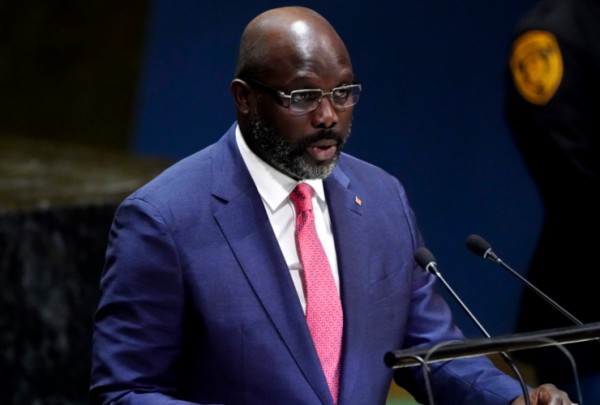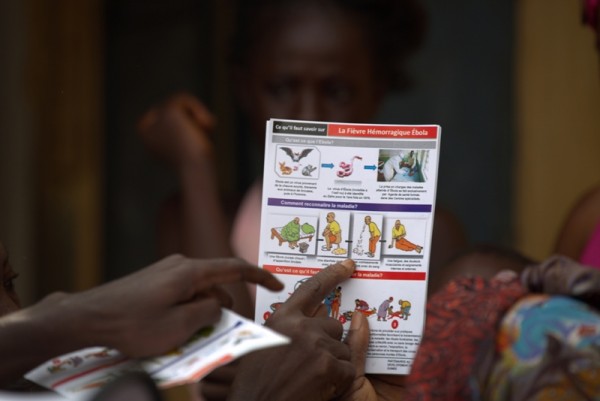IPI welcomed the decision by Liberian President Ellen Johnson Sirleaf to work toward the repeal of criminal defamation laws in her country, which came amid other recent positive developments with respect to libel laws around the world.
In a speech given on May 3, President Johnson Sirleaf endorsed the Declaration of Table Mountain, which calls for the repeal of criminal defamation and insult laws across the African continent. She is the second African head of state to do so, after Niger’s President Mahamadou Issoufou in November 2011, according to a statement from the World Association of Newspapers and News Publishers (WAN-IFRA).
The Declaration was adopted in 2007 at a World Association of Newspaper conference in partnership with IPI and many other regional and international press freedom groups. The Declaration identifies “as the greatest scourge of press freedom on the continent the continued implementation of ‘insult laws’, which outlaw criticism of politicians and those in authority, and criminal defamation legislation, both of which are used indiscriminately in the vast majority of African states that maintain them and which have as their prime motive the ‘locking up of information’.”
The International Press Institute (IPI) believes that criminal defamation laws are a scourge not just in Africa but around the world, and recently launched a campaign to have criminal defamation laws repealed throughout the Caribbean, which will see an IPI delegation visiting the Dominican Republic, Jamaica, Barbados and Trinidad and Tobago to meet with government, media, and civil society representatives on decriminalising libel offences.
On May 2, the Caribbean Media Corporation reported that the prime minister of Grenada, Tillman Thomas, promised: “Before the end of this year there should be no criminal libel on our law books”. Thomas reportedly also pledged that his government would push for passage of a Freedom of Information Act and a new media policy.
IPI also welcomed other positive steps taken around the world.
Britain’s Queen Elizabeth II announced Wednesday in her traditional speech to open a new session of Parliament that a measure to overhaul the United Kingdom’s defamation laws would be part of the legislative agenda. Although the speech did not provide details, the announcement meant that Prime Minister David Cameron’s coalition government could shortly introduce a bill free speech groups said they hoped would curb the so-called practice of “libel tourism,” for which the United Kingdom has faced increasing criticism in recent years.
The New York Times reported that the U.K.’s Justice Ministry, in a briefing document provided to journalists, said the bill “will reduce the potential for trivial claims and address the perception that our courts are an attractive forum for libel claimants with little connection to this country, so that our law is respected internationally”. The document also indicated that the bill, among other provisions, would strengthen protection for websites hosting user-generated content, as well as measures to curb trivial claims, the Times said.
Earlier this week, Kosovo President Atifete Jahjaga’s press office reportedly said that she would not sign a draft criminal law passed in March which would single out journalists and impose jail time for defamation, and which would force journalists to reveal sources. The proposed law will now go back before Kosovo’s parliament.
Prosecutors in the Canadian province of New Brunswick last week decided not to pursue criminal libel charges against blogger Charles LeBlanc, who posted comments describing a police officer as a “sexual pervert” following an altercation, in which LeBlanc alleged the officer touched him inappropriately. Courts in the provinces of Alberta, Saskatchewan and Ontario have ruled that Canada’s criminal libel law, Sec. 301 of the country’s Criminal Code, is unconstitutional and a spokesperson for the New Brunswick Attorney General’s Office said “it is highly unlikely that any court in New Brunswick would come to a contrary decision.”
Last week, the European Broadcasting Union said that the head of Azerbaijani President Ilham Aliyev’s political department, Ali Hasanov, told EBU representatives following a meeting at the broadcasters’ headquarters in Geneva that his country’s leadership “was open to changing state legislation to reduce defamation to a civil and not a criminal offence”. Hasanov also reportedly pledged that his government would probe alleged abuses of journalists, but some observers were harshly critical of the meeting, calling it little more than window-dressing as the oil-rich Caspian nation prepares to play host to the EBU’s Eurovision Song Contest later this month.
On April 30, members of a parliamentary law consolidation committee in Malta reportedly indicated support for a proposal to decriminalise libel, but some members of the committee called for a corresponding increase in civil libel penalties.


